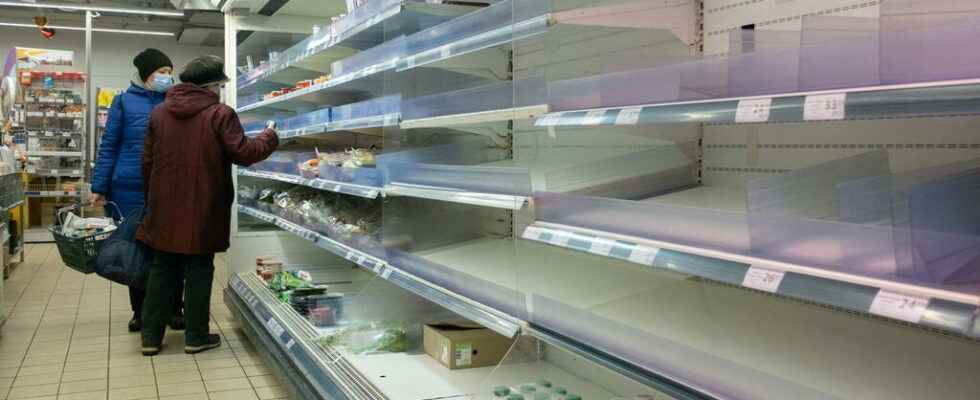After more than three weeks of war, the World Food Program (WFP) is sounding the alarm: food supply chains are collapsing in Ukraine. But the conflict is already beyond Ukrainian borders, with serious consequences for global food security. Abeer Etefa is one of the WFP spokespersons.
RFI : What is the current food situation in Ukraine ?
Abeer Etefa : The World Food Program is very concerned that families living in besieged areas, and especially in Mariupol, have great difficulty finding food. We have mobilized enough aid to provide food assistance to over 3 million people in Ukraine for one month. And we’re trying to put the delivery systems in place.
But the situation is really difficult; especially in places like Kyiv where the food supply chain is now broken. Some food arrives, but sometimes people have to wait several days before they can shop. They pass the information on where the food is coming from and then run to the supermarket. So very quickly the shelves are empty.
Supermarkets and warehouses are emptying
Thus, the existing systems that usually feed tens of millions of people are collapsing. Part of the trucks and trains were destroyed. The bridges have fallen. And logically supermarkets and warehouses are emptying.
RFI : What are and will be the consequences of the war in Ukraine on food security elsewhere in the world?
A wave of famine is spreading across the world. Ukraine and Russia alone account for 30% of world wheat trade. And both are essential players in ensuring food security in many countries around the world.
The world wheat stock is good. The problem is that these countries are far away.
Sanctions on exports of fertilizers produced in Russia will have an impact on agricultural production in many countries. The Middle East and North Africa are particularly vulnerable to rising food prices because they import so much of their food.
►Also read: War in Ukraine: Africa is getting organized in the face of the risk of a food crisis
For the production of wheat, alternatives exist throughout the world: in Australia, Canada and the United States. In fact the world wheat stock is good. The problem is that these countries are far away. And with the increase in fuel prices, the price of transportation increases. So the war in Ukraine is a catastrophe on top of an already catastrophic year of hunger. The world is turned upside down by climatic disasters, conflictsCovid-19 and rising food prices.
And all of this will have a serious impact on the world. Take the example of the World Food Programme: we have to spend an additional $71 million a month to buy exactly the same food aid as in 2021. That’s four million people, four million people we can no longer feed. .
Faced with this situation, what are WFP’s priorities? ? For which countries are you requesting funds from international donors ?
We call on the international community to help all countries in need. Two days ago a donor conference for Yemen ended, but we didn’t even raise 11% of what we would need this year.
And even for Ukraine, we are not getting the necessary funding. As humanitarian needs grow around the world. The major international organizations no longer have the resources to come to the aid of the most vulnerable, who are nevertheless growing in number.
